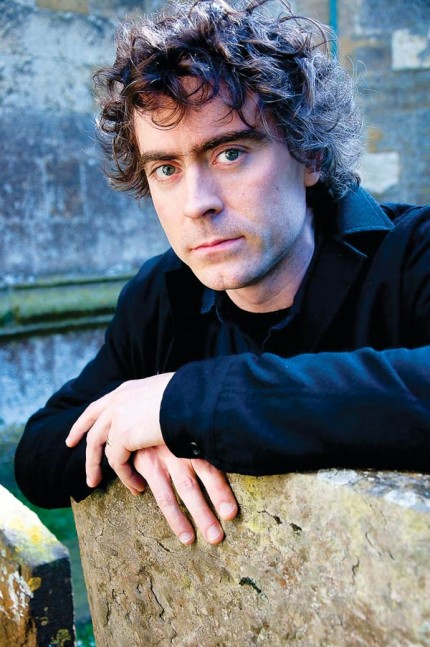Lewis continues his Schubert cycle with strength and intelligence

For the penultimate installment of his Chicago Schubert cycle, Paul Lewis offered two A minor sonatas artfully prefaced by a pair of shorter works Sunday afternoon at Symphony Center.
For the most part, Lewis’s program demonstrated the qualities that have distinguished the British pianist’s ongoing cycle—keen intelligence, faultless technical polish, a wide dynamic palette, seamless transitions, and a firm architectural grasp.
Those elements were manifest in the afternoon’s leadoff item, the Sixteen German Dances, D.783. In this short work — more of an integral tone poem than suite — Lewis brought a graceful fluency, pointing the waltz rhythms and investing the more brilliant dances with a nervy edge that underlined the darkness beneath the placid Biedermeier surface.
Lewis moved so smoothly without pause into Schubert’s Allegro in C minor, D. 915, that less attentive audience members were likely unaware he was starting a new piece. Here too, Lewis brought out the contrasts of this concise single movement, distilling the mix of spare introspection and lyric refinement.
Schubert’s earlier less familiar Sonata in A minor, D. 784, is a structurally unwieldy work with a first movement nearly as long as the two following movements combined. Though not a masterwork on the level of his three final sonatas, it paves the way and inhabits much the same world — fitful sunny lyricism undermined by dark shadows as with the violent left-hand tremolo that breaks in upon the opening bars. As before, Lewis was an expert guide in this music, blending the inward delicacy with daunting stentorian force in the dramatic epiodes.
Yet, I confess I had the same reaction as I’ve had to previous installments in this series. There was undeniably terrific playing from Lewis Sunday — the clarity of the right-hand figurations in the Andante, the agitated drive of the nerve-wracked concluding movement.
Still, for all the technical skill and clear intelligence, I can’t help feeling that Lewis’s Schubert never quite provides that unblinking look into the godless abyss that this tortured music calls for. In the first movement, one admires his silken transitions but as the music moves into ever more desolate regions, it feels more like we’re experiencing a clear and well-assembled guidebook to the music rather than the music itself.
So too, in Schubert’s late masterwork in the same key, the Sonata in A minor, D.845, as superb and carefully wrought as the performance was, one wanted a deeper expression and more personal response to this music. Rarely will one hear the vast architecture assayed with such command and intelligence. Yet for all Lewis’s sterling qualities, one couldn’t help thinking that we’re not getting the entire story. It would be wrong to call such dramatic performances slick or calculated but something essential is missing — a sense of loss, emotional pain and psychic dislocation.
Comparisons are subjective — and on this level, invidious — but I couldn’t help hearkening back to Mitsuko Uchida’s performance of the final three Schubert sonatas on this same stage last month. Lewis possesses more digital power and even greater polish than Uchida, but in her poetic, intimate style, Uchida seemed to take us much closer to Schubert’s heart of darkness.
Lewis concluded the afternoon with a rare encore for this series, Schubert’s Hungarian Melody in B Minor, D. 817
Posted in Performances

